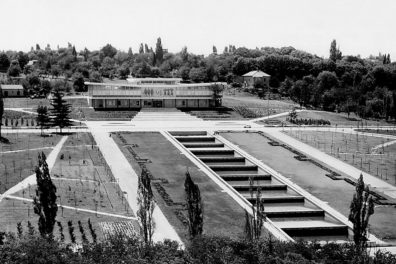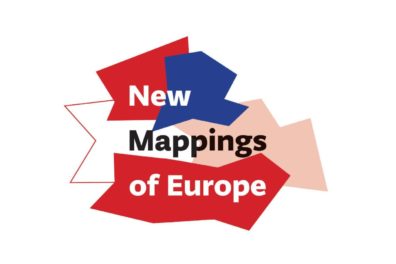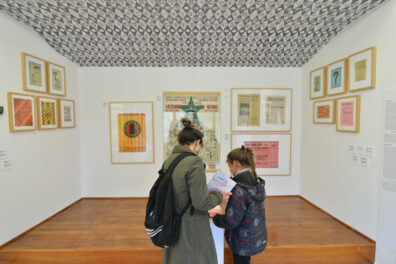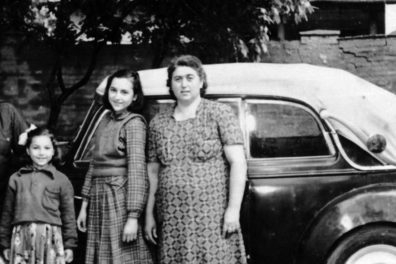
Project Yugoslavia
Is the Yugoslav past already musealized, historicized and stored in the archives? Is it inscribed in historical essays, debates, artifacts of various collections, in memories? Do we understand it from the perspective of a linear timeline, as a completed period that is behind us, or as a cultural category that is “all around us, equally ahead and behind us” as suggested by philosopher Boris Buden. Can that past offer us any explanation about the present moment? Can it help us to understand the crisis which exists in the world today? For example, the constant messages about the European Union being on the verge of collapse since it is daily facing disruptions and challenges. Can we use the example of the multinational, multi-confessional state that disintegrated 25 years ago as a starting point in rethinking the alternatives for this present moment in which we live? This project starts from the assumption that the past is not a set of dead facts and completed events, exploring the potential of different ideas that had constituted the concept of Yugoslavia in the contemporary period as well as in the future.
With the main aim being to step back from the word history and to explore the contemporary relevance of these ideas – upon which Yugoslavia built its statehood – this project involves a large number of people of various age, history and background from the region of the former Yugoslavia. Through short video interviews conducted with 100 participants, we recorded their thoughts on the concepts we find to be highly important when thinking about the Yugoslav state, such as non-alignment, cooperation, freedom of movement, solidarity, modernity, progress, state, statesman, hero, self-governance, women’s rights, community, past, future, economy, work, leisure time, family, heritage, etc. Instead of proposing the specific question, every participant was given a card with information about an object from the Museum’s collection, containing the object’s description, date or period when it was made, and its origin. This information, rather than the objects themselves, initiated reflection on this particular topic and opened the possibility for reflecting its relevance in the contemporary context. Through this method, we aimed to translate the Museum’s collection of material traces of the past (collection of artifacts) in the form of a live comments, current thoughts, ideas and potentials for the future.
Bypassing the physical character of the object, we tried to redirect the thinking about the heritage of the Yugoslav state from the nostalgic vision of the past, and put the accent on reflecting about the region, Europe and the world today that seem to be in the permanent state of the crisis and conflict, filled with inequality and the lack of tolerance.
Project Yugoslavia is created through collaboration of the Museum of Yugoslavia and Kiosk platform for contemporary art within the working process on the Museum’s permanent display, which is multi-perspective and trans-disciplinary.
The project is realized with the help and support from many friends, organizations and institutions: Anamarija Batista, Erol Billibani, Iskra Geshoska, Nataša Govedarica, Alenka Gregorič, Mia David, Stevan Dimitrijević, Varja Đukić, Nataša Zavolovšek, Arlind Kirajtani, Dren Maliqi, Duško Miljanić, Mladen Miljanović, Mićo Parežanin, Borka Pavićević, Katarina Pejović, Lazar Pejović, Venita Popović, Dragan Protić, Tatjana Rajić, Marijana Rimanić, Vjera Ruljić, Ares Shporta, Elma Hasimbegović, Ana Hofman, Teodor Celakoski, Nataša Škaričić, DokuFest (Prizren), Expeditio (Kotor), Karver (Podgorica), Kontrapunkt (Skoplje), MAMA (Zagreb), City Gallery (Ljubljana), Historical Museum of Bosnia and Herzegovina (Sarajevo).
Kiosk – a platform for contemporary art in cooperation with the Museum of Yugoslavia
Project is supported by Balkan Trust for Democracy and Ministry of Culture and Information of the Republic of Serbia
Authors: Ana Adamović and Milica Pekić
Camera, editing: Ana Adamović
Video postproduction: Vladan Obradović
Postproduction and sound design: Dejan Čeko and Srđan Bajski
Translation: Goran Kričković, Verica Krstić, Katarina Pejović, Nora Bezera
Web support: Dušan Jevtić, Museum of Yugoslavia
The project is realized with professional support of the director of the Museum of Yugoslavia Neda Knežević and curators: Ana Panić, Ivan Manojlović, Katarina Živanović, Aleksandra Momčilović Jovanović, Jovana Nedeljković, Veselinka Kastratović Ristić.

The Origins: The Background for Understanding the Museum of Yugoslavia
Creation of a European type of museum was affected by a number of practices and concepts of collecting, storing and usage of items.

New Mappings of Europe

Museum Laboratory
Starting from the Museum collection as the main source for researching social phenomena and historical moments important for understanding the experience of life in Yugoslavia, the exhibition examines the Yugoslav heritage and the institution of the Museum

